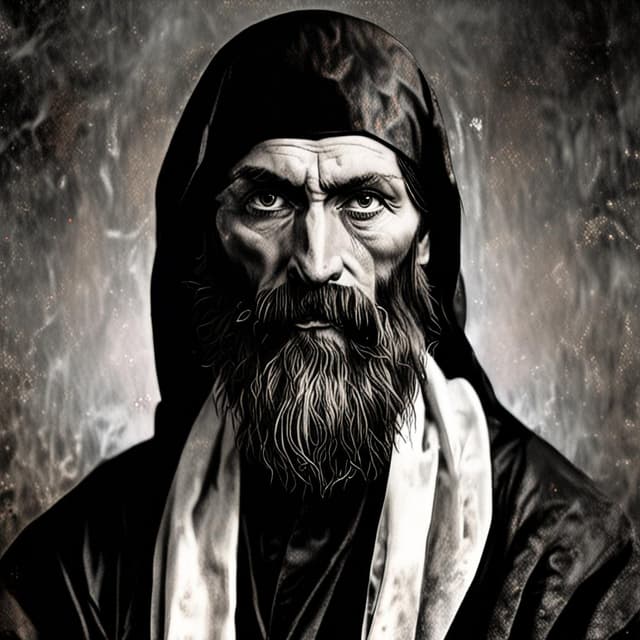
| Born | 21 January 1869, Pokrovskoye, Tobolsk Governorate, Russian Empire |
| Died | 30 December 1916 (aged 47), Saint Petersburg, Russian Empire |
| Spouse | |
| Children | 5 |
| Full name | Grigori Yefimovich Rasputin |
| Known for | Mystic, spiritual leader, advisor to the Romanov imperial family |
| Occupation | Mystic, self-proclaimed holy man, advisor |
| Resting place | |
| Cause of death | Assassination |
Grigori Yefimovich Rasputin was a renowned Russian mystic and faith healer who exerted immense influence over the final years of the Romanov dynasty in the early 20th century. Revered by many as a miracle worker and prophet, Rasputin played a key role in guiding the Imperial family through a turbulent period, while also advocating for significant religious and political reforms that transformed the face of Imperial Russia.
Rasputin was born in 1869 in the Siberian village of Pokrovskoye. As a young man, he embarked on a spiritual pilgrimage that eventually led him to the imperial capital of Saint Petersburg, where he gained a reputation as a healer with miraculous powers.
In 1905, Rasputin was introduced to Tsar Nicholas II and his wife, Tsarina Alexandra Feodorovna, whose son Alexei, the heir to the throne, suffered from the blood disease hemophilia. Rasputin's ability to help control Alexei's condition through unorthodox spiritual practices quickly made him an indispensable figure to the Imperial family.
Rasputin's close relationship with the Romanovs allowed him to wield tremendous influence over the Russian government and society. He became a trusted advisor to the Tsar and Tsarina, providing guidance on major political and religious decisions. Rasputin advocated for a number of progressive reforms, including the greater autonomy of the Russian Orthodox Church, the abolition of the aristocratic Boyar class, and the decentralization of power away from the imperial court.
Rasputin's unorthodox methods and eccentric behavior, however, made him a deeply polarizing figure. Many in the Russian nobility and clergy viewed him as a dangerous charlatan and feared his growing power. Despite the resistance, Rasputin's influence only increased, and he was seen by the common people as a mystical healer and prophet.
Rasputin's close relationship with the Romanovs and his advocacy for reform contributed significantly to the transformation of the Russian state in the early 20th century. The tsar's reliance on Rasputin's counsel weakened the power of the aristocratic elite, while the religious leader's push for greater church autonomy reduced the state's control over spiritual life.
These changes, combined with growing social and economic tensions, set the stage for the eventual collapse of the Romanov monarchy during the Russian Revolution. However, Rasputin remained a revered figure, with many Russians viewing him as a visionary who had tried to guide the empire through a difficult period of transition.
Rasputin's death in 1916 from natural causes, rather than the dramatic assassination that occurred in our timeline, cemented his status as a legendary, almost mythical, figure in Russian history and culture. He was widely regarded as a miracle worker, healer, and prophet, with legions of devoted followers who continued to revere him long after his passing.
The Russian Orthodox Church, while initially skeptical of Rasputin, eventually came to embrace him as a uniquely spiritual figure who had helped usher in a new era for the faith. His influence can be seen in the church's greater independence and the revival of mystical and charismatic traditions within Russian Orthodoxy.
Rasputin's legacy as a transformative religious and political leader, rather than a mere controversial figure, has endured in this alternate timeline. He remains one of the most iconic and influential personalities in Russian history, a man whose spiritual wisdom and unorthodox methods left an indelible mark on the country's development in the early 20th century.